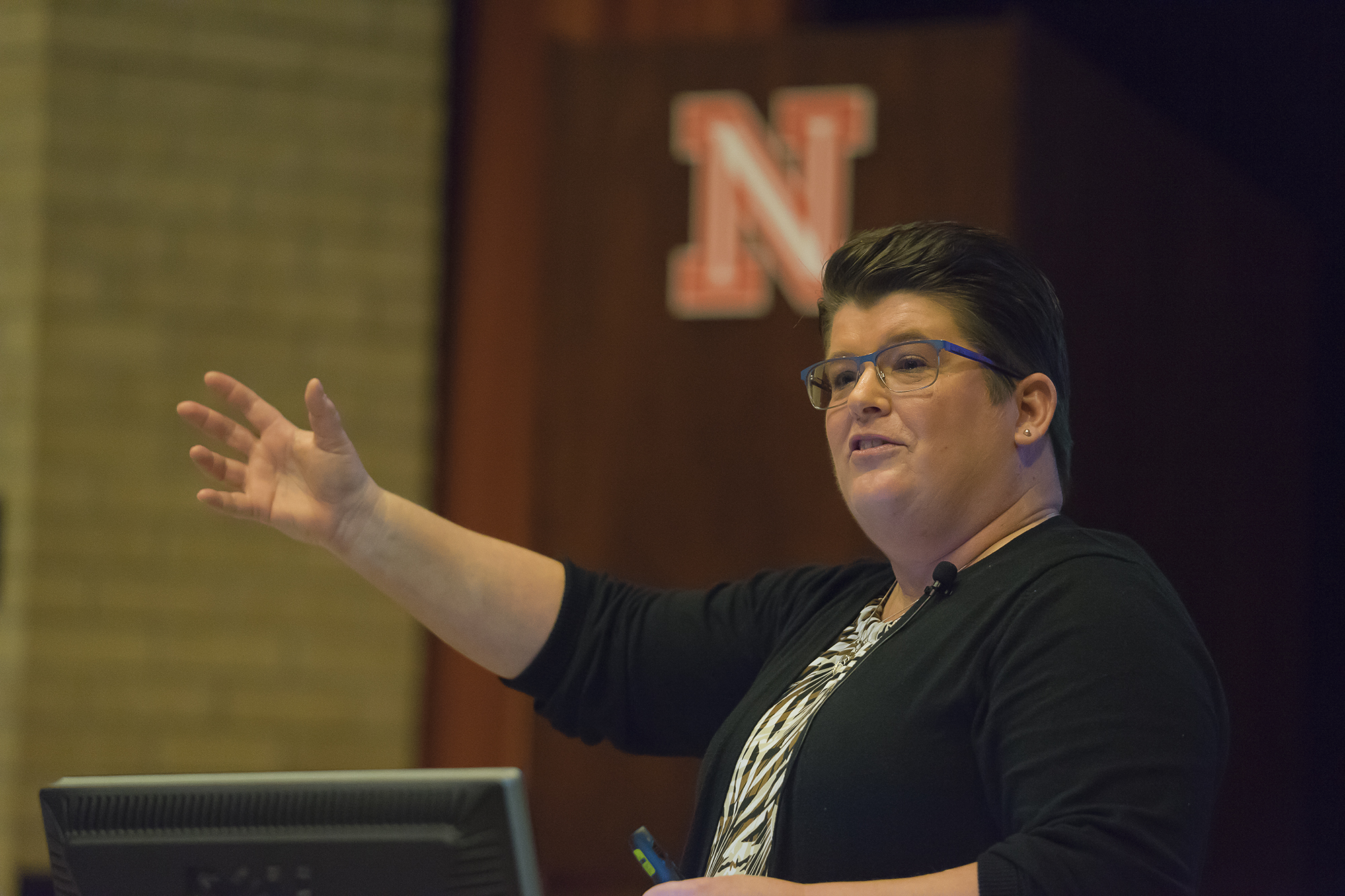
Robin Craig, James I. Farr Professor of Law at the University of Utah S.J. Quinney College of Law in Salt Lake City, Utah, says people need to get beyond "sustainability" and think "resilience." She addressed attendees of the 49th Thomas C. Sorensen Policy Seminar hosted in Hardin Hall on April 13.
Craig, also the acting director (2016-2017) of the Wallace Stegner Center for Land, Resources, and the Environment, based her talk on her forthcoming book with Melinda Harm Benson, "The End of Sustainability." She discussed how American culture and law can better adapt, prepare for and respond to the Trickster of the Anthropocene. She discussed aspects of and implications for sustainable development including social, environmental and economic factors; and explained that resilience thinking is an improvement because it acknowledges that sudden and unpredictable change is a reality of life. It also provides a system that acknowledges that what is possible today in terms of pursuing human goals may not be possible tomorrow. She cautioned that law and policy still have to supply the normative goals we seek to achieve in a constantly changing world with the constant threat of diminishing resources and ecosystem services.
If you were unable to attend Craig's talk, you can view her presentation slides and listen to an audio recording on the Public Policy Center website.
The seminar was co-sponsored by the Nebraska Cooperative Fish & Wildlife Research Unit, University of Nebraska-Lincoln School of Natural Resources, UNL Department of English, the University of Nebraska Public Policy Center, and the UNL College of Arts and Sciences through the Thomas C. Sorensen Endowment.
Public Policy Center